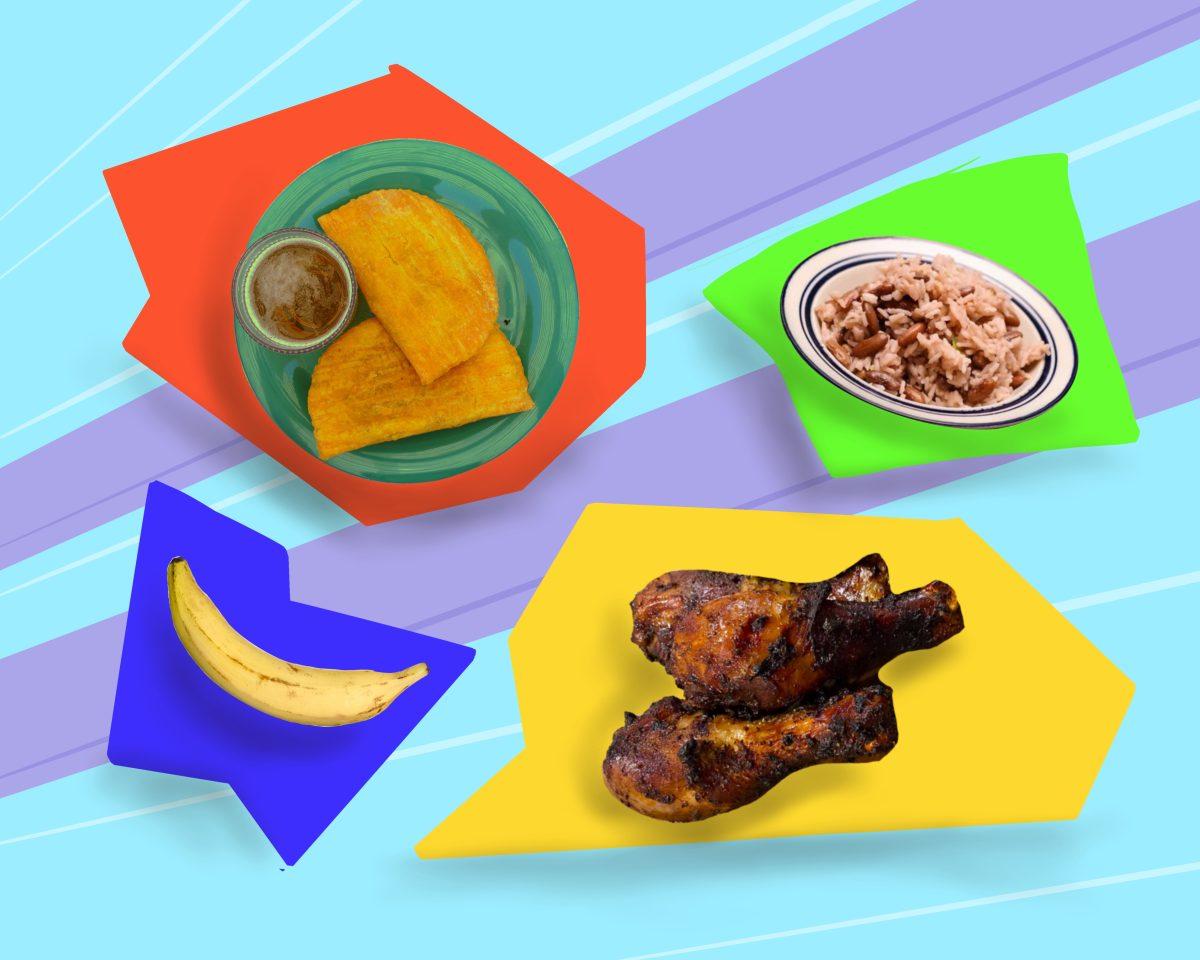The African American Cultural Center hosted the third installment in its Diaspora Dinner event series Friday, celebrating Black History Month and Black culture through cuisine from the African continent and diaspora.
Tamir Elsharif, a fourth-year studying psychology and AYA ambassador who facilitated the dinner, began the event with a presentation on various types of Caribbean cuisine.
He said many Caribbean foods were influenced by slavery, from the introduction of European spices to cooking methods that prevented captors from detecting smoke from cooking fires.
“I felt like the history kind of made me realize how much went into the food because I feel like a lot of the time African people, or people from different parts of the African diaspora, they’re resilient, and they come up with a lot of stuff even though they don’t have like a lot of resources,” Elsharif said. “They come up with stuff like on the fly, and a lot of it’s just based on the history and their experiences, like I found with the jerk chicken, how it was used to cook to avoid getting caught again by their captors.”
The African American Cultural Center hosts Diaspora Dinners in place of its “What’s on the Table?” series during Black History Month to dive deep and highlight different aspects of the Black diaspora. It has hosted dinners focused on soul food and Western African cuisine and plan to focus on Congolese food next week.
“So the goal in mind is really to expose students to different pieces of the diaspora, to think about Blackness in a way of it not being a monolith,” said Kelis Johnson, a fourth-year in Africana studies and public health and lead AYA ambassador. “So really focusing on like, okay, ‘What does it mean to be a part of the diaspora? … What different cultures do they celebrate?’ And specifically through food.”
Elsharif said he picked Caribbean food to highlight an underrepresented part of the African diaspora.
“I [felt] like Caribbean could be something I would do, especially since one of my friends, she’s also Caribbean, and she told me that she didn’t feel like she had a lot of representation when it came to [food],” Elsharif said. “And so I thought that that would be a good, a fun little thing, especially since a lot of people when they think of the African diaspora they don’t really think of the Caribbean.”
Johnson said common foods across the African diaspora help connect different cultures.
“So at all of the dinners so far … will have plantains served,” Johnson said. “One is West African plantain, but then also in the Caribbean, they do serve [plantains] and we just didn’t have it here from the dinner this week. But next week, we’ll have plantains also. So it’s really just [to] show how we’re all interconnected, but our diasporas, they all differ.”
The food served at this iteration of the Diaspora Dinners included rice and beans, jerk chicken, stewed cabbage and beef and chicken patties catered from Virgil’s Jamaica Food Truck.
After students enjoyed the food, Elsharif invited attendees to reflect on their favorite dishes and how knowing the history of the food impacted eating it.
“Learning about the history and then eating the food felt a little bit more personal, … and maybe it creates a connection with food better,” said Emani Small, a second-year studying psychology.
However, the true merit of the dinners lies beyond the food in the opportunity for students to connect.
“I feel like [the Diaspora Dinners] kind of brings people together because people who might not have known about Caribbean food, who might not have known about Nigerian food or who don’t identify with those things, come together, enjoy good food, have a good time and share time with friends, especially during this month, where we need unity as much and representation,” Elsharif said.
Elsharif said the Diaspora Dinners are especially important during Black History Month in giving students a space for unity and representation.
“I feel like Black students don’t have a lot of places they can talk about these issues amongst other Black students,” Elsharif said. “And so I think that’s something that we at the African Americans Cultural Center value. This is supposed to be a safe place for African American students to hang out and find their people. And I feel like these events strengthen that bond that we have as a community.”
The African American Cultural Center will host one more Diaspora Dinner focused on Central African and Congolese food Friday, Feb. 23. Interested students can sign up through the NC State events calendar.














